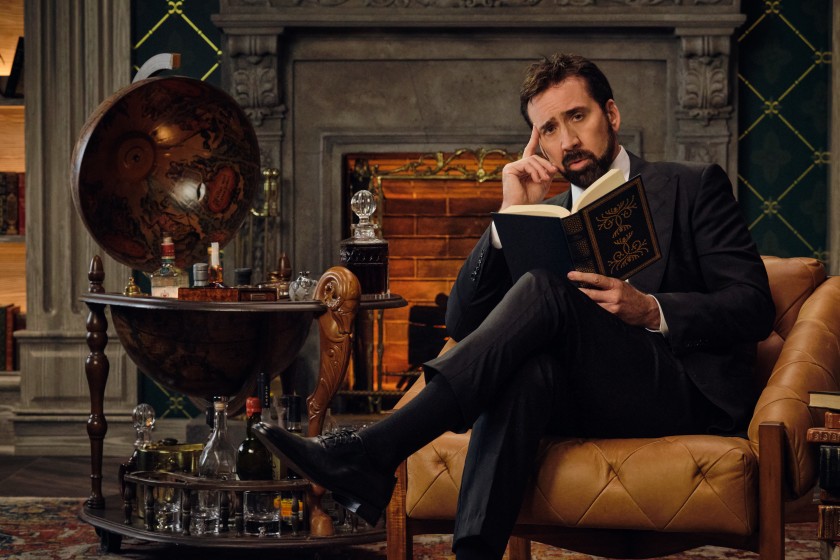The History of Swear Words: 2021’s first disappointment



I had such hopes. The History of Swear Words looked like the right combination of interesting and funny, and while the full series is sort of interesting, it is not very funny. And worse, pursuit of jokes actually makes it less interesting. The series, directed by Christopher D’Elia—not to be confused with disgraced comedian Chris D’Elia—and written by comedy producer Bellamie Blackstone, is a mix of comedians and actual experts walking through the history of a half-dozen choice swears, ranging from “F-ck” to “Damn”. Weirdly, the series starts with “F-ck” and ends with “Damn”, even though it feels like that should be reversed. Seems like you’d want to build up to the biggest, baddest of the dirty words, but History starts big and then gets small, which pretty much encapsulates the experience of watching it: deflation.
Nicolas Cage makes for a charming host, though his role is mostly limited to bookending each episode with only moderate interjections throughout the episodes, which are surprisingly short. At just 20 minutes a pop, History is easy to binge, but the individual episode length does a disservice to the topic. The experts interviewed include lexicographer Kory Stamper and cognitive scientist Benjamin Bergen, who outline the evolution of these words and how they influence everything from history to our brains, and film critic Elvis Mitchell and women’s studies professor Mireille Miller-Young add context for how these words shape pop culture and social interaction. It’s really interesting! But History keeps cutting away to comedians, like those old VH-1 clip shows that were popular 20 years ago, which makes the show feel dated and more like a webisode than a proper television show. History feels a lot like Netflix trying to do Buzzfeed. Like it would not take much to turn History into a web series.
The comics interviewed include Sarah Silverman, Nikki Glaser, Nick Offerman, Joel Kim Booster, Zainab Johnson, and London Hughes, among others, but the real standout is Patti Harrison (she can also be seen eulogizing Instagram influences on Amazon Prime’s Yearly Departed special). She doesn’t even try to be funny, Harris simply speaks earnestly about how profanity relates to her own lexicography of slang, such as how the word “bitch” intersects with her personal expression of feminism. Similarly, Joel Kim Booster is at his best when discussing whether or not the LGBTQ+ community can reclaim “bitch”, a word often used to emasculate and humiliate gay men. Less effective are Glaser and Silverman, who keep trying to do bits when History really doesn’t need it. Cage is there to provide a humorous slant to the show, but the real heart of History is the sincere exploration of how profanity has evolved in the English language. The comedians just get in the way of that.
The History of Swear Words feels unfinished, like it barely scratches the surface of its own conceit. Also, how did we get through two-plus hours of a discussion of profanity and pop culture and no one mentioned Lenny Bruce even once?! If we’re going to listen to a random assortment of comedians opine on swears, one of them should definitely bring up the one and only comic to ever truly get cancelled for some sh-t he said on stage. Another gaping void is a total lack of George Carlin, who had an incredibly famous bit about words you can’t say. If History means to be more of a comedy special and less of a docuseries, then it should lean into how these words mix into the history of comedy, but that element is missing completely. Instead, we’re left with a strange hybrid, a too-short series about the history of bad words with one too many comedians horning in on the cool parts about how these words worked their way into common parlance. It’s short enough that if you want to binge The History of Swear Words, it won’t take much of your time. But it will leave you wanting more, and not in a good way.

